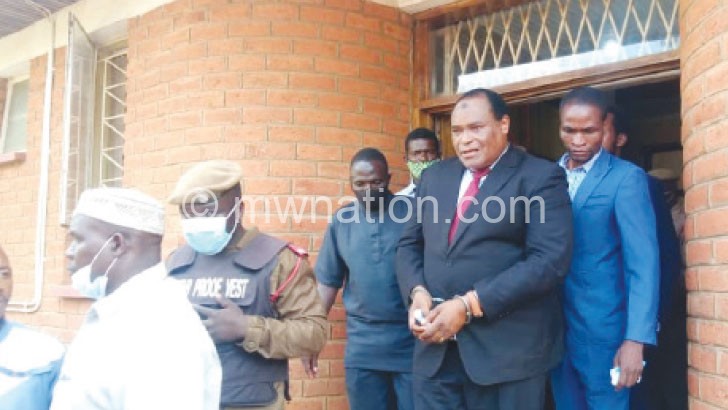The year ACB grew teeth
The Anti-Corruption Bureau (ACB) surprised citizens in 2020. The graft-busting body set the bar high by prosecuting high profile cases, including securing convictions of some of the big names in society. It was a feat never achieved in the bureau’s history.
For a short period, the country witnessed the arrest of business mogul Thomson Mpinganjira, former secretary to Cabinet Lloyd Muhara, former minister of Lands, Housing and Urban Development Simon Vuwa Kaunda, former Deputy Minister of Transport and Public Works Charles Mchacha, Ministry of Defence Principal Secretary Bright Kumwembe, former Malawi Energy Regulatory Authority (Mera) chief executive officer Collins Magalasi and others.

The bureau also managed to secure convictions for Former Minister of Home Affairs Uladi Mussa, Immigration officer David Kwanjana and Democratic Progressive Party (DPP) regional governor (North) Christopher Mzomera Ngwira.
Asked why ACB was swift in handling high-profile cases, then director Reyneck Matemba said the bureau under the Tonse Alliance administration has been accorded a conducive environment to operate.
He said: “The institution now has operational space to carry out its work, financial support from government and most importantly, public support, which is crucial to the fight against corruption.”
Matemba, who has since taken up a new role as Solicitor General, stressed at the time that in the past ACB faced several challenges, some beyond its control—which affected the fight against corruption.
He also said despite having a team of hard-working, professional and dedicated members of staff, the institution faced challenges ranging from operational to financial and it was hard to properly execute work.
“If government continues supporting our work, and we manage to sustain and build on the support that we are getting from the public, the ACB will do more than what we’ve achieved in the year ending.
“The ACB seems to be regaining public support and trust. And on our part as ACB, we will work hard, not only to sustain the trust, but to build on it,” Matemba pointed out, rubbishing the allegations that ACB was targeting the former ruling party members or those connected to the party.
He explained that ACB acts on complaints or tips made by several stakeholders.
“It shouldn’t be surprising that most of the complaints or allegations that we are receiving relate to the party you’ve mentioned, the reason is simple, they were in government and, therefore, in charge of State coffers and affairs. Moreover, some of the people that you’ve mentioned are not politicians, but public servants,” Matemba adds.
On why some cases have dragged for years, he justified such delays, saying corruption cases are very complex and therefore difficult to investigate.
Matemba explained that in most cases, people that are corrupt will ensure that they leave no paper trail as they conceal or destroy evidence.
“To get that evidence, you need to be meticulous and smart. And when you don’t have enough financial and human resources to do that complex work, investigation of those cases will obviously take long to be completed,” he said.
National Anti-Corruption Alliance chairperson Moses Mkandawire believes that political will on the part of country’s leadership, lack of the political interference and improvement in funding of ACB was the charm behind the fight put up by bureau.
He argued that most people suspected to have been engaging in corruption were senior people in the DPP led government and it was hard for ACB to go after them.
Mkandawire also lamented that ACB was not being prioritised in terms of funding which heavily affected its operations in the past.
“The current President Lazarus Chakwera and Vice-President Saulos Chilima have shown political will in the fight against corruption and that makes it easier for ACB to operate. There is no political interference,” he said.
The activist further said at the pace that ACB is going, there is hope that the country might make progress in the corruption fight.
“However, there is need for more funding so that ACB can recruit more lawyers as prosecutors and sustain them. There is a high chance of losing the lawyers to the private sector on financial grounds,” he warns.





